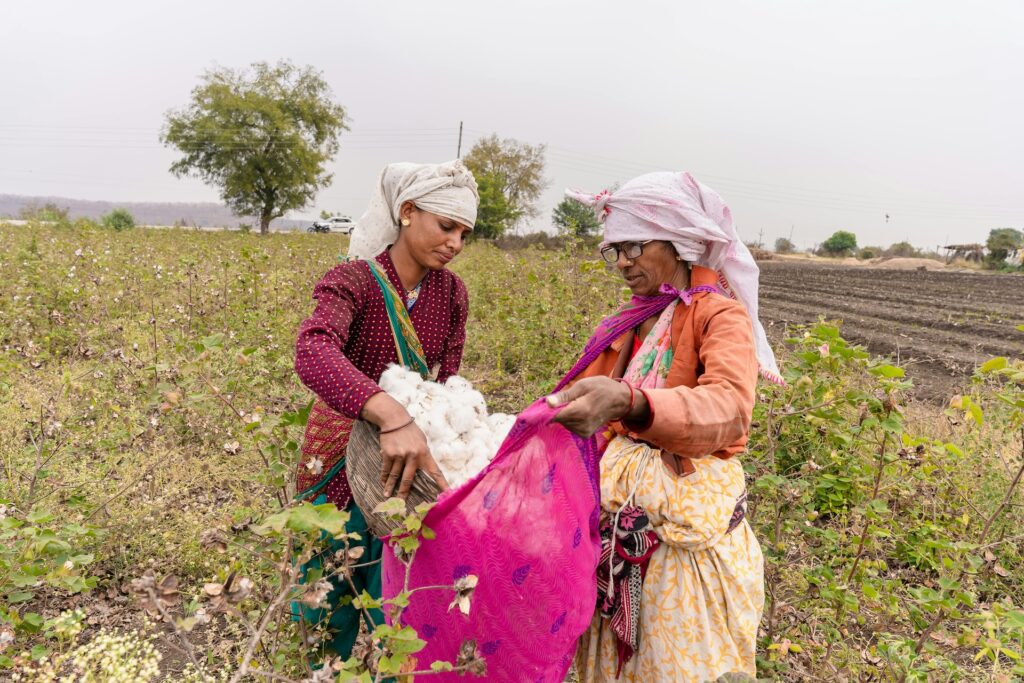In the sprawling fields where cotton blossoms under the sun, a quiet revolution is underway—one that goes beyond sustainable agriculture and reaches deep into the social fabric of communities. Organic cotton farming, with its commitment to environmental stewardship, is not only about cultivating a cleaner, greener crop but also about sowing seeds of positive change in the lives of those who tend to the fields. In this exploration, we shine a light on the social responsibility aspect of organic cotton farming, delving into fair labor practices, community development, and the transformative impact on the lives of cotton farmers.
Fair Labor Practices: Nurturing Dignity in the Fields
One of the defining features of organic cotton farming is the emphasis on fair labor practices. Unlike conventional cotton farming, where laborers may face exposure to harmful pesticides and work in less-than-ideal conditions, organic cotton farms prioritize the well-being and dignity of their workforce. From ensuring safe working environments to providing fair wages, organic cotton farming fosters an atmosphere of respect for the individuals who contribute to the cultivation process.
Community Development: Growing Together
Organic cotton farming isn’t just about growing a crop; it’s about cultivating communities. The practices associated with organic farming often involve a collaborative approach, where local communities are integral to the process. Organic cotton farms frequently engage with local residents, offering opportunities for employment, skill development, and community participation. This collaborative spirit fosters a sense of shared responsibility and pride in the success of the organic cotton venture.
Empowering Women: A Force for Positive Change
Organic cotton farming has become a catalyst for empowering women in agricultural communities. Through initiatives that promote gender equality, women are finding themselves in roles beyond traditional norms. Whether it’s participating in decision-making processes, gaining access to education and healthcare, or contributing to sustainable farming practices, women in organic cotton farming communities are becoming agents of positive change within their societies.
Health and Well-being: Putting People First
The absence of synthetic pesticides in organic cotton farming is not only an environmental boon but also a significant contributor to the health and well-being of the farming communities. Without exposure to harmful chemicals, farmers and laborers enjoy a safer working environment. Reduced health risks and improved overall well-being translate into stronger, more resilient communities that can thrive for generations to come.
Educational Initiatives: Nurturing Minds for a Sustainable Future
Organic cotton farming often goes hand in hand with educational initiatives that empower farming communities. By investing in education, organic cotton farms contribute to the long-term sustainability of communities. From promoting agricultural best practices to fostering a culture of learning, these initiatives create a ripple effect that extends beyond the fields and into the broader landscape of social development.
Seeds of Change, Harvesting Hope
In conclusion, organic cotton farming isn’t just about what happens in the fields; it’s about cultivating change at a grassroots level. The social responsibility embedded in organic cotton farming is a testament to the transformative power of sustainable practices. As we choose products made from organic cotton, we become participants in a movement that values not only the environment but also the lives and communities intertwined with the fabric of our choices.
The next time you wrap yourself in the softness of organic cotton, remember that it carries with it the stories of fair labor, community empowerment, and positive change—a fabric woven not just with fibers but with the threads of hope for a more sustainable and socially responsible future.




